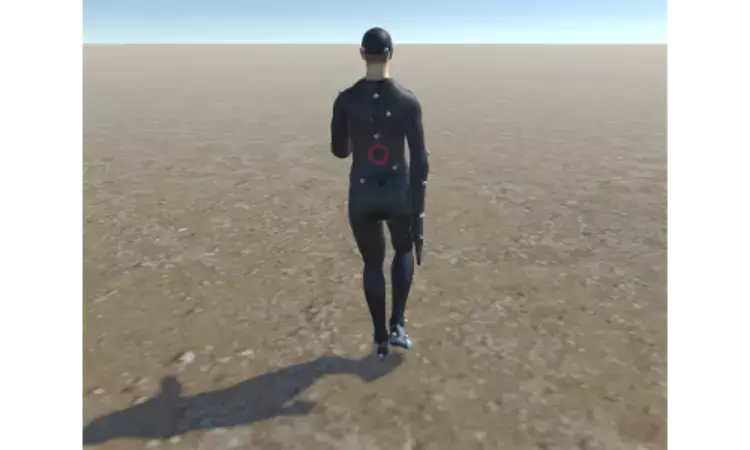- Home
- Medical news & Guidelines
- Anesthesiology
- Cardiology and CTVS
- Critical Care
- Dentistry
- Dermatology
- Diabetes and Endocrinology
- ENT
- Gastroenterology
- Medicine
- Nephrology
- Neurology
- Obstretics-Gynaecology
- Oncology
- Ophthalmology
- Orthopaedics
- Pediatrics-Neonatology
- Psychiatry
- Pulmonology
- Radiology
- Surgery
- Urology
- Laboratory Medicine
- Diet
- Nursing
- Paramedical
- Physiotherapy
- Health news
- Fact Check
- Bone Health Fact Check
- Brain Health Fact Check
- Cancer Related Fact Check
- Child Care Fact Check
- Dental and oral health fact check
- Diabetes and metabolic health fact check
- Diet and Nutrition Fact Check
- Eye and ENT Care Fact Check
- Fitness fact check
- Gut health fact check
- Heart health fact check
- Kidney health fact check
- Medical education fact check
- Men's health fact check
- Respiratory fact check
- Skin and hair care fact check
- Vaccine and Immunization fact check
- Women's health fact check
- AYUSH
- State News
- Andaman and Nicobar Islands
- Andhra Pradesh
- Arunachal Pradesh
- Assam
- Bihar
- Chandigarh
- Chattisgarh
- Dadra and Nagar Haveli
- Daman and Diu
- Delhi
- Goa
- Gujarat
- Haryana
- Himachal Pradesh
- Jammu & Kashmir
- Jharkhand
- Karnataka
- Kerala
- Ladakh
- Lakshadweep
- Madhya Pradesh
- Maharashtra
- Manipur
- Meghalaya
- Mizoram
- Nagaland
- Odisha
- Puducherry
- Punjab
- Rajasthan
- Sikkim
- Tamil Nadu
- Telangana
- Tripura
- Uttar Pradesh
- Uttrakhand
- West Bengal
- Medical Education
- Industry
Patients may successfully carry out Physiotherapy at home using Virtual Reality
 Courtesy University of Warwick
Courtesy University of WarwickCurrent Physiotherapy techniques require patients to complete exercises at home, which doesn't include much guidance. Researchers at WMG, University of Warwick have developed a model of Virtual reality (VR) combined with 3D Motion capture could allow movements to be translated onto an avatar the patient can follow during physiotherapy.
Virtual reality (VR) could help physiotherapy patients complete their exercises at home successfully thanks to researchers at WMG, University of Warwick, who managed to combine VR technology with 3D motion capture. Consumer VR technologies can be used for both providing guidance to physiotherapy exercises, but also to make the exercises more interesting and encourage people to complete the course they need
Currently, Patients find it difficult to complete prescribed physiotherapy exercises at home. Outside of the clinic, patients rarely receive any guidance other than a leaflet of sketches or static photographs to instruct them on how to complete their exercises. This leads to poor adherence, with patients becoming anxious about not getting the exercise right, or simply getting bored by the repetitiveness of the movements.
The advent of consumer virtual reality technology combined with 3D motion capture allows real movements to be accurately translated onto an avatar that can be viewed in a virtual environment. Researchers at the Institute of Digital Healthcare, WMG, University of Warwick are investigating whether this technology can be used to provide guidance to physiotherapy patients, by providing a virtual physiotherapist in the home to demonstrate the prescribed exercises.
Their paper, 'Timing and correction of stepping movements with a virtual reality avatar' published today the 28th of February, in the Journal PLOS ONE, has focused on whether people are able to accurately follow the movements of a virtual avatar.
Researchers had to investigate whether people were able to accurately coordinate and follow the movements of an avatar in a virtual environment. They asked participants to step in time with an avatar viewed through a VR headset.
Unknown to the participants, the researchers subtly slowed down or speeded up one of the avatar's steps, such that the participants would have to correct their own stepping movement to stay in time. The effect this correction had on their step timing and synchronisation with the avatar was measured.
Lead author, Omar Khan from WMG, University of Warwick commented:
"If participants were observed to correct their own stepping to stay in time with the avatar, we knew they were able to accurately follow the movements they were observing.
"We found that participants struggled to keep in time if only visual information was present. However, when we added realistic footstep sounds in addition to the visual information, the more realistic multisensory information allowed participants to accurately follow the avatar.
Dr Mark Elliott, Principal investigator on the project at WMG, University of Warwick added:
Read Also: Cadre Restructuring for Physiotherapists: Health Minister apprises parliament
"There is huge potential for consumer VR technologies to be used for both providing guidance to physiotherapy exercises, but also to make the exercises more interesting. This study has focused on the crucial question of how well people can follow a virtual guide."
Prof. Theo Arvanitis, co-author and Director of the Institute of Digital Healthcare, said:
"Our work and digitally-enabled technological solution can underpin transformative health innovations to impact the field of physiotherapy, and have a direct benefit to patients' rehabilitation.
"We now plan to investigate other types of movements working closely in partnership with physiotherapists, to establish the areas of physiotherapy that will benefit most from this technology."
For further reference please log on to- https://doi.org/10.1371/journal.pone.0229641
Medical Dialogues Bureau consists of a team of passionate medical/scientific writers, led by doctors and healthcare researchers. Our team efforts to bring you updated and timely news about the important happenings of the medical and healthcare sector. Our editorial team can be reached at editorial@medicaldialogues.in.
Dr Kamal Kant Kohli-MBBS, DTCD- a chest specialist with more than 30 years of practice and a flair for writing clinical articles, Dr Kamal Kant Kohli joined Medical Dialogues as a Chief Editor of Medical News. Besides writing articles, as an editor, he proofreads and verifies all the medical content published on Medical Dialogues including those coming from journals, studies,medical conferences,guidelines etc. Email: drkohli@medicaldialogues.in. Contact no. 011-43720751


